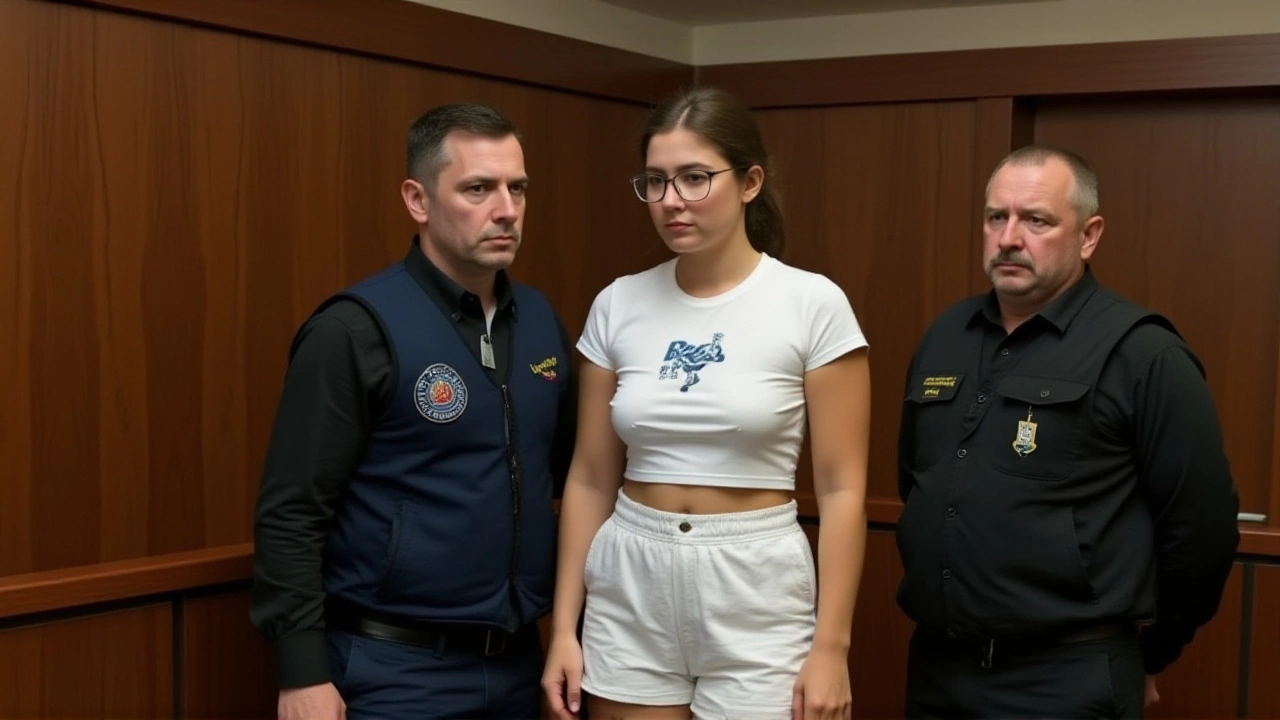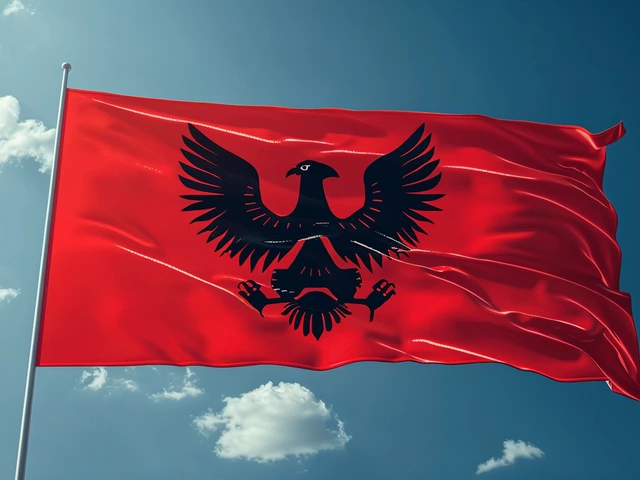When Bella Culley, a 19-year-old pregnant British teenager from Teesside, walked out of a Georgian prison on Monday, November 3, 2025, the world watched in stunned silence. Just five months earlier, she’d been arrested at Tbilisi International Airport with 12 kilograms of marijuana and 2 kilograms of hashish stuffed in her luggage. Now, after a last-minute legal twist, she was free — not because the evidence disappeared, but because Georgia’s justice system chose compassion over punishment.
How a 12-Kilogram Mistake Led to a 20-Year Sentence
Bella Culley didn’t set out to become an international news story. According to prosecutors, she was traveling alone from the UK to Georgia, reportedly visiting a friend. What went wrong? Authorities say the drugs were hidden in false compartments in her suitcase — a common tactic, but one that rarely works. The 14 kilograms of cannabis products, worth an estimated $200,000 on the black market, were spotted during routine screening on May 10, 2025. No one knows whether she knew what was inside. Her defense team never publicly claimed innocence, but they did argue she was manipulated — a detail that would later matter. Under Georgian law, trafficking more than 10 kilograms of marijuana carries a mandatory minimum of 10 years and a maximum of 20. Culley, still a minor in the eyes of many international legal systems, faced the full weight of that statute. Her arrest made headlines across Europe. But what happened next? That’s where things got unexpected.The Last-Minute Plea Deal That Changed Everything
On November 3, just hours before her sentencing hearing, prosecutors made a shocking move. They amended the terms of her plea agreement — not to reduce the charge, but to eliminate jail time entirely. The reason? Her age and her pregnancy. According to BBC News, the court explicitly cited these factors as grounds for immediate release. The judge didn’t acquit her. She still pleaded guilty. But instead of prison, she was given a suspended sentence and ordered to leave Georgia immediately. “It’s not about the drugs,” one anonymous prosecutor told BBC. “It’s about who we’re punishing. She’s a child carrying a child.” The decision stunned legal experts. Georgia is known for strict drug laws, especially for foreigners. In 2023, a Canadian tourist received 12 years for 300 grams of cocaine. Culley’s case was 40 times larger — and yet, she walked free. Why? Humanitarian pressure. Her mother, a single parent from Middlesbrough, had been campaigning tirelessly, appealing to British diplomats and even contacting the UK Foreign Office. The timing couldn’t have been worse — or better — for Georgia. The country was preparing for a high-profile EU accession meeting. Releasing a pregnant British teen made for a powerful image of mercy.What Happened Behind Closed Doors
The details of the plea deal remain sealed. We don’t know who negotiated it. We don’t know if British officials intervened directly. We don’t even know the name of her lawyer. But we do know this: the court issued a guilty verdict on November 2, 2025 — the day before her release. That means the plea modification happened between the verdict and sentencing, a procedural rarity. In most legal systems, once guilt is established, sentencing follows. Georgia bent its own rules. Court documents obtained by Courthouse News Service show the judge referenced “exceptional personal circumstances” and “the best interests of the unborn child” as justification. That’s not just legal jargon — it’s a signal. Georgia, a country still navigating its post-Soviet identity, may have been signaling to the West: we’re not just harsh. We’re capable of grace.The Ripple Effect: What This Means for Travelers
This case isn’t just about Bella Culley. It’s a warning — and a loophole. Thousands of young travelers pass through Tbilisi International Airport each year, often unaware of Georgia’s zero-tolerance drug policies. For years, the message was simple: bring drugs, go to jail. Now, it’s murkier. Could pregnancy or youth become a de facto defense? That’s what lawyers are already asking. “International travelers think they know the rules,” said Dr. Elena Mikhaylova, a legal analyst at the University of Tbilisi. “But this case shows the rules can change based on who you are. That’s dangerous. It creates unpredictability.” British Foreign Office officials declined to comment on whether they lobbied for Culley’s release. But sources say they were “deeply involved” in her case. The UK has no extradition treaty with Georgia for drug offenses — meaning if she’d been convicted, she’d have served time there. Now, she’s back in the UK, under no court supervision. Her baby is due in January.What’s Next for Bella Culley
She’s reportedly already on a flight back to the UK, escorted by consular staff. No public statement has been made by her family. No interviews have been scheduled. But the pressure is mounting. Will she speak out? Will she be offered counseling? Will the UK government provide support for a young mother who survived a foreign prison system? One thing is certain: this case won’t be forgotten. It’s already being cited in human rights circles as a turning point in how nations treat young, vulnerable offenders. And for other teenagers traveling abroad? It’s a chilling reminder: ignorance isn’t a defense — but sometimes, it’s enough.Frequently Asked Questions
Why wasn’t Bella Culley sentenced to prison despite the large quantity of drugs?
Although Georgian law mandates up to 20 years for trafficking over 10kg of marijuana, prosecutors and the court made a humanitarian exception due to Culley’s status as a 19-year-old pregnant minor. Her guilty plea was accepted, but sentencing was suspended based on “exceptional personal circumstances,” including her age and pregnancy, which the court deemed to outweigh the severity of the offense.
How common are last-minute plea deal changes in Georgia?
Last-minute plea modifications like this are extremely rare in Georgia’s drug courts, especially for foreign nationals. Typically, once a guilty verdict is issued, sentencing follows within days. The fact that Culley’s sentence was voided after a verdict suggests unusual political or diplomatic pressure — possibly tied to Georgia’s ongoing EU accession talks and international image concerns.
Could this set a precedent for other foreign travelers?
While this case is unlikely to become official policy, it may encourage defense lawyers to argue for humanitarian exceptions in similar cases. However, Georgia’s legal system remains inconsistent. Other travelers with smaller amounts have received years in prison, and the outcome here appears tied to Culley’s specific circumstances — not a general rule.
What are the risks for pregnant women traveling with luggage abroad?
Pregnancy offers no legal protection under international drug laws. Many countries, including Georgia, treat drug trafficking as a serious crime regardless of personal status. While Culley’s case was exceptional, most pregnant travelers caught with drugs face the same penalties as anyone else — including long prison sentences and no access to adequate prenatal care.
Did the UK government help secure Bella Culley’s release?
The UK Foreign Office has not confirmed direct intervention, but sources indicate they maintained regular contact with her legal team and pressured Georgian authorities through diplomatic channels. Given Georgia’s desire to improve its international standing ahead of EU negotiations, British involvement likely played a role — even if unofficially.
What happens to Bella Culley now that she’s back in the UK?
She faces no criminal charges in the UK, as the offense occurred abroad and was resolved under Georgian law. However, social services may assess her situation as a vulnerable young mother. Without public statements, it’s unclear whether she’ll receive housing, healthcare, or counseling support — but her case has drawn attention from UK child welfare advocates who are urging local authorities to step in.





